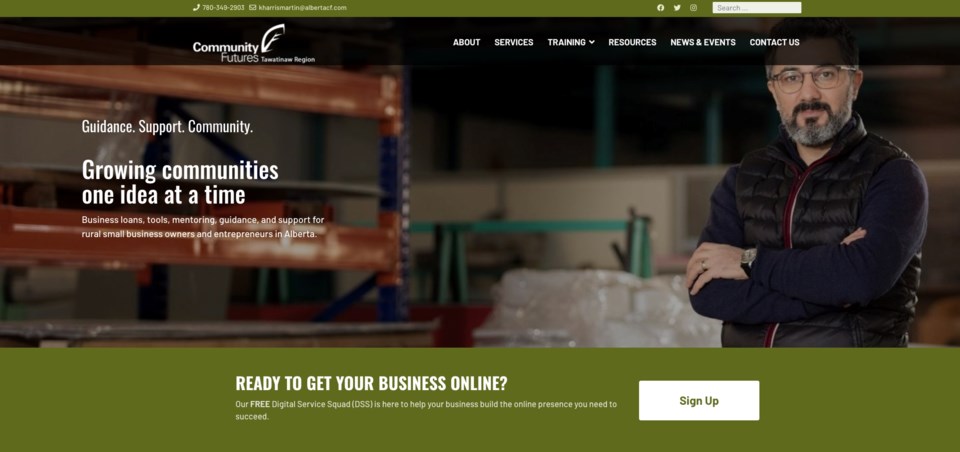WESTLOCK – The head of Community Futures Tawatinaw would like Westlock County to implement some form of business licensing telling councillors that “ … it’s extremely hard to help our local businesses when you don’t know where they are.”
General manager Kelly Harris-Martin, who was at the county’s Feb. 8 meeting providing an update on the organization, encouraged councillors to consider implementing even free business licences to catalogue what exists within the municipality. Community Futures Tawatinaw, which is in the process of changing its name to Community Futures - North Central Alberta, is a non-profit organization funded by the federal government via Western Economic Diversification Canada and offers services ranging from free succession planning and marketing advice to business loans up to $150,000.
Harris-Martin, who had been asked by Coun. Isaac Skuban about business licences, cautioned councillors about using them as a revenue generator and said they should be viewed as “economic development.” Westlock County, Athabasca County, Sturgeon County and Thorhild County are the municipalities that fall under Community Futures Tawatinaw.
“The idea of business licensing makes me giddy and I know that probably isn’t going to make all of the businesses happy. I really encourage you not to treat it as revenue generation, but to treat it as economic development. It is something we desperately need,” said Harris-Martin, noting Athabasca County also doesn’t issue business licences.
“It would make my job so much easier to go to a list and see that I’ve got 27 local producers who do this or that or say 14 backyard businesses who are in alternative energy production and those types of things.
“I would encourage council to consider business licensing, even if they’re free. I don’t think that business licensing has to be treated as a cash-generation-type project. For me it’s extremely hard to help our local businesses when you don’t know where they are. It would be great for me, I’m not going to lie.”
Council accepted her 10-minute report as information, with reeve Christine Wiese calling the notion of licences “great advice” and one they “should put on their radar.” Based in Westlock since it opened in 1986, Tawatinaw is one 269 Community Futures offices across Canada and is staffed by “seasoned business professionals” and guided by a volunteer board of directors that includes reps from the municipalities.
During the pandemic the organization administered more than $3 million in short-term loans via the 2020 Government of Canada Regional Relief and Recovery Fund (RRRF) to small- and medium-sized businesses throughout the region — Harris-Martin said they handed out more $20,000 and $40,000 loans in a six-to-eight-month period that what they did in the previous 10 years.
Repayment terms on those loans include no interest accrual or principal payments through Dec. 31, 2022, and if 75 per cent of the loan is repaid by then, the remainder is forgiven. Blended principal and interest payments start Jan. 1, 2023, and loans must be repaid by Dec. 31, 2025. Harris-Martin told town councillors in December that they won’t know what the overall success rate is going to look like until probably 2024 or 2025, although she was told by more than one business owner that without the cash infusion “they wouldn’t have made it through.”



